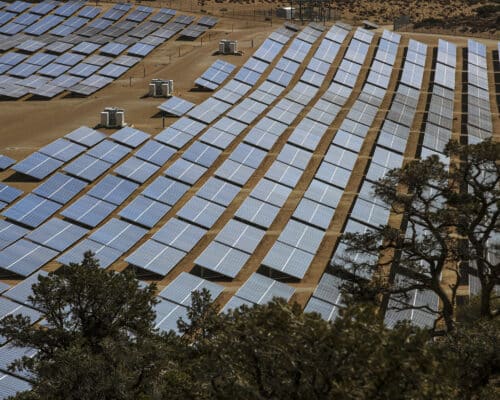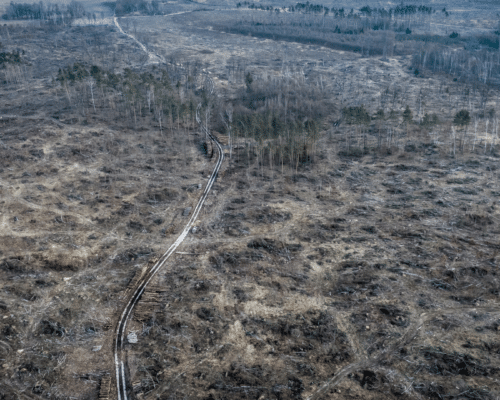3 Ways AI Can Stop Climate Change
02 September 2022 – by Dhra Dhirakaosal Naglis
Do AI and climate change have something in common? It’s a strange thought, but they are more closely related than we may think. 2022 marks another year where the impacts of climate change have become more apparent. From flooding in Pakistan to scorching heatwaves in many parts of the world, climate change is growing into a global problem.
Adopting energy efficiency and reducing energy consumption would not cut it only; combating carbon emissions is the best way to fight climate change.
Dealing with the climate crisis requires all hands on deck, as well as any other support available, including those made possible via artificial intelligence (AI).
Ways to Use AI For Climate Change
Here are three ways that AI can help us combat climate change:
1. AI Can Help Curb Global Warming and Make Predictions
Machine Learning
Machine learning (ML), a branch of AI that uses data and algorithms to forecast, suggest, identify patterns, and bring data insights to light, can be used to help predict weather patterns and extreme weather events such as sea level rise. The system imitates the way humans learn, allowing its accuracy to improve with time.
Early Warning System
Researchers at Pennsylvania State University and meteorologists analysed more than 50,000 weather satellite images to help predict storms faster. They found that the presence of comma-shaped clouds would typically indicate upcoming severe weather events, such as thunderstorms, blizzards, hail and high winds. Using machine learning and computer vision, researchers used computers to detect these clouds in satellite images. The clouds were detected with 99% accuracy and took about 40 seconds each time, allowing experts to make better forecasts.
A system like this could serve as an “early warning system” to help minimise the costly damage that extreme weather events have on infrastructure, agriculture, transportation and people’s health and livelihoods.
2. Artificial Intelligence and Climate Monitoring Systems
Monitoring Greenhouse Gas Emissions
Artificial intelligence (AI) can also monitor greenhouse gas emissions – including those of methane gas, an extremely potent GHG. Leaky gas pipe infrastructure and oil drilling rigs are significant contributors. Satellite and aircraft remote sensing technologies can detect methane emissions, with AI employed to calculate the emissions rate, location and volume. This allows the monitoring, reporting and repair of leaks. Nonprofit organisations and companies like Carbon Mapper, GHGSat and MethaneSAT are currently carrying out these efforts.
Monitoring Deforestation
The technology also pinpoints deforestation. Such was the case with the Monitoring the Andean Amazon Project (MAAP). MAAP combined the use of satellite imagery, regression models and AI algorithms. It detects forest landscape discrepancies and identifies illegal deforestation in real-time.
Monitoring Peatlands
Peatlands, a type of wetland ecosystem that serves as the largest natural carbon sink, can also be monitored using AI. Peatlands are critical for mitigating the impacts of climate change due to their ability to store more carbon than all other vegetation types combined.
However, once the turf in a peatland dries, it releases carbon dioxide through decomposition and becomes vulnerable to fire. This can lead to the release of colossal amounts of GHG emissions. Hence, AI currently monitors the turf’s thickness and carbon stock to protect peatlands from drying up.
3. Improving Climate Policy and Decision-making
Since AI can single out useful information within vast amounts of unfiltered data, the technology can provide better measurements, analyses, predictions and systems. The data is crucial for improved climate policy and decision-making at meetings like the UN’s upcoming COP27, a climate conference that will be instrumental in setting the way forward.
More precise information is also invaluable for developing better regulations and incentives that, in turn, encourage positive climate practices and bring down emissions on a greater scale and speed.
Does AI Cause Climate Change?
Some critics warn that AI could further contribute to climate change, as processing and storing large amounts of data can be highly energy-intensive. That’s why it will be crucial to ensure climate change considerations for AI-enabled technology during its development stage. Organisations and private sector leaders should conduct proper reporting, avoid funding and procure AI that doesn’t align with climate goals. Hence, some say the opportunities outweigh the risks.
AI and Climate Change: Not a Silver Bullet, But a Supporting Tool
Despite AI’s vast potential in assisting with the fight against climate change, the technology can only play a supporting role. The solutions it provides serve only as a tool for the better-informed crafting of policies and decision-making. Yet, tackling climate change requires multifaceted cooperation from all parties and stakeholders.





